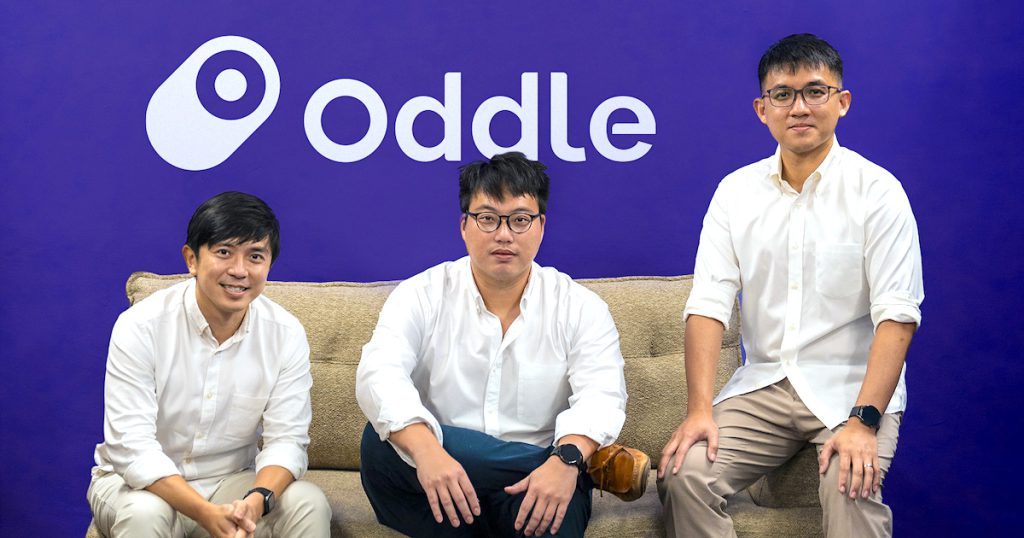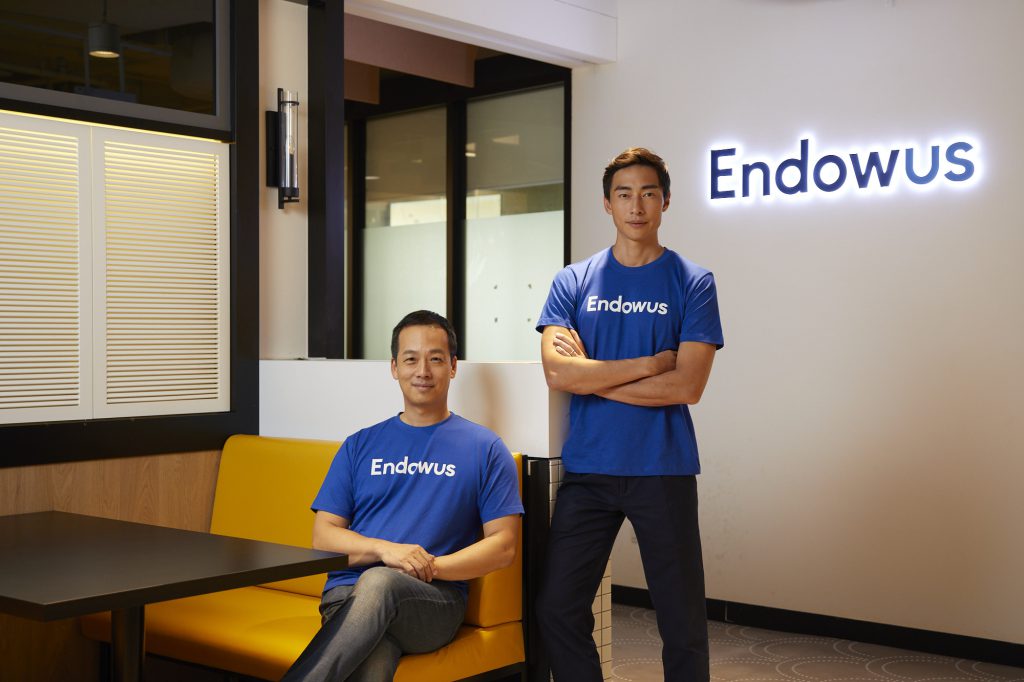[This is the final instalment of Vulcan Post’s three-part SG60 series, where we shine the spotlight on 60 homegrown businesses that have shaped Singapore. You can read the previous instalment here.]
Over the decades, Singapore has been shaped not only by its people but also by the brands they’ve built.
These homegrown businesses tell stories of innovation and resilience, reflecting the spirit of a nation that constantly adapts and evolves.
In this final instalment of Vulcan Post’s SG60 series, we round off our celebration of 60 remarkable local businesses that have played a significant role in shaping Singapore’s economy—and like our previous instalments, we’ve arranged them in order of founding year:
41. ShopBack (2014)

ShopBack started out nine years ago in 2014 as the brainchild of former Zalora executives Henry Chan and Joel Leong.
The cashback rewards company recorded only three transactions a day when it first started, but it has since grown to become one of Singapore’s rising startups and a leading player in the region’s e-commerce landscape.
Today, ShopBack has over 50 million shoppers across 13 markets in Asia Pacific, and facilitates over US$4 billion in annual sales for over 20,000 online and in-store partners.
The platform also processes upwards of half a million transactions daily.
42. NinjaVan (2014)

Lai Chang Wen, the CEO of Ninja Van, has always had a strong entrepreneurial streak. He first started a made-to-measure menswear business called Marcella, but during a six-month stint in China setting up a factory for it, he decided to elevate the business by moving into e-commerce.
However, unreliable courier services meant that many of his customers’ deliveries were delayed or lost. Realising that Singapore’s logistics infrastructure wasn’t optimised for e-commerce, he set out to change the game.
In 2014, Lai co-founded tech-driven logistics company Ninja Van with two long-time friends, Shaun Chong (now CTO) and Tan Bo Xian (COO). Within just three years, the homegrown firm expanded into six other Southeast Asian markets: Malaysia, Indonesia, Thailand, the Philippines, Vietnam, and Myanmar.
In 2021, Ninja Van achieved unicorn status after raising US$578 million in a funding round led by Alibaba Group, valuing the company at over US$1 billion. Today, it delivers over 2 million parcels daily and serves more than 120 million customers across the region.
43. Cloversoft (2014)

Few would trade lucrative, high-paying careers for entrepreneurship, but Cloversoft founders Angela Sim and Lynn Yeo took the leap—and it seems like their gamble has paid off.
The brand started out with unbleached bamboo tissues and toilet rolls in 2014, and now, armed with research labs in both Europe and Singapore, Cloversoft has expanded its product range to include toilet cleaners, laundry detergent pods, dishwashing liquid, body washes, and more.
Today, Cloversoft is a household name in Singapore and has expanded into Taiwan and Indonesia, bringing its eco-friendly products to more consumers across the region.
44. GCL Global Holdings (2014)

GCL Global Holdings produces and distributes video games across seven countries, and has forged more than 15 multi-year deals with big-name publishers such as TAKE-TWO, CD Projekt Red, Warner Bros. Games, SEGA, and Bandai Namco.
The group is responsible for bringing some award-winning favourites to Singapore, including Hogwarts Legacy, Grand Theft Auto V, Red Dead Redemption II, Cyberpunk 2077, The Witcher 3: Wild Hunt, and Elden Ring.
The company is also the parent holding group of a few other Singaporean companies, including YouTuber Jianhao Tan’s Titan Digital Media.
Earlier this year, GCL Global Holdings went public on NASDAQ in the United States through a merger with special purpose acquisition company RF Acquisition Corp.
45. 99.co (2014)

99.co was founded in 2014 by Darius Cheng, Yan Phun, and Conor McLaughlin, stemming from personal frustrations with the property rental search experience.
The founders found the property renting process riddled with outdated listings, duplicate or fake listings, and unresponsive agents.
This led them to create 99.co, with the goal of providing a more user-friendly and efficient platform for renters.
Over the years, the company has made two significant acquisitions: UrbanIndo, one of Indonesia’s largest property portals, and SRX (Singapore Real Estate Exchange), a property platform and data provider in Singapore.
These acquisitions have deepened the company’s presence in these markets. In 2023, 99.co posted US$17 million in revenue.
46. Oddle (2014)

Jonathan Lim, founder and CEO of Oddle, used to be an F&B owner. He opened his restaurant The Lawn in 2011, and has over 13 years of experience in the food and beverage (F&B) and technology industry.
As an F&B owner, he found many gaps in the industry that cause challenges for him and other F&B owners. Though there are many digital platforms to work with to provide an easier, holistic experience for their customers, it can get overwhelming, and restaurant owners themselves don’t get much control or benefit over the services.
Facing similar problems such as an impossible six-figure quota in an attempt to build an online ordering site for his restaurant, Jonathan decided to be the change needed in this industry.
He then started Oddle in 2014, a one-stop platform that focuses on helping F&B owners digitise their business together with co-founders Alan Goh and Yong Xiang Pua. From reservation systems to loyalty programmes, Oddle empowers restaurants to better manage operations and grow revenue.
Today, over 5,000 restaurants use the platform, including well-known Singapore brands such as Dian Xiao Er and Gyu San. Oddle has also expanded its footprint to other markets, including Malaysia, Hong Kong, and Taiwan.
47. Carro (2015)

Online car marketplace Carro was founded in 2015 by Aaron Tan, Aditya Lesmana and Kelvin Chng after noticing a lack of transparency and efficiency in the used car market in Southeast Asia.
The platform enables consumers and dealers to buy and sell vehicles, while also offering insurance, financing and after-sales services.
Carro achieved the coveted US$1 billion unicorn status in June 2021 after securing US$360 million in funding.
Besides Singapore, it currently has a presence in six markets across the Asia-Pacific region: Malaysia, Indonesia, Thailand, Japan, Taiwan and Hong Kong. It has more than 4,500 employees across the region.
Just yesterday, reports have surfaced that Carro is currently preparing for a US initial public offering (IPO) as early as 2026.
48. Beyond the vines (2015)

Beyond The Vines was established in 2015 by husband and wife team Rebecca Ting and Daniel Chew.
At the time, Singapore’s fashion scene swung between high-concept luxury and mass-market basics, leaving a gap for pieces that were well-designed, well-made, functional, and accessible. The duo spotted that gap, and built a brand to fill it.
Today, Beyond The Vines is best known for its iconic Dumpling Bag: a lightweight, water-resistant, reversible nylon carryall that has become a staple in many Singaporeans’ wardrobes.
Beyond Singapore, the brand has established outlets in Thailand and the Philippines. It has also held pop-ups in Japan.
49. Allies of Skin (2016)

Nicolas Travis once struggled with terrible acne as a teenager. It took years for his skin to clear, and he found the process of finding the ‘right’ products very arduous and intimidating.
This prompted him to start his own skincare line—Allies of Skin. He wanted to empower people with fuss-free products that are concentrated, multi-tasking nutrient reservoirs.
Allies of Skin started out in 2013 with just one product, after Nicolas spent two and a half years doing research and development. The brand slowly expanded to three products, which generated over half a million dollars in Singapore sales within just one year.
Today, Allies of Skin has a projected revenue of US$50 million for 2025 and is sold in 36 countries in over 800 stores globally.
50. Circles.Life (2016)

Circles.Life was founded in 2014 by Rameez Ansar, Abishek Gupta and Adeel Najam to disrupt Singapore’s telecommunications industry.
They aimed to address the lack of innovation and poor customer service they saw in existing telcos, offering a digital-first approach with more transparent and affordable plans.
Since then, Circles.Life has been disrupting the market and taking on established giants like Singtel, M1, and StarHub.
In 2024, the company restructured under the parent entity Circles, dividing into three distinct units: Circles software, Circles.Life, and Jetpac, a travel eSIM business.
Circles is currently exploring a listing on the NASDAQ in New York, while Circles.Life is preparing for an initial public offering on the Singapore Exchange (SGX).
51. Homage (2016)

Eldercare tech startup Homage was founded by Gillian Tee after she returned to Singapore following 15 years of living in the US.
She was inspired to create the platform after experiencing difficulties finding quality care for her mother, who had kidney problems and mobility issues.
Gillian also observed a high rate of readmission for seniors due to inadequate post-hospitalisation care and the general struggle of primary caregivers.
Back in the United States, Gillian noted how technology helped to improve senior care, and she was keen to explore a similar model in Singapore. Hence, together with two other co-founders, she started Homage in 2016.
By 2022, Homage had grown to 15,000 part- and full-time caregivers, expanded to Malaysia and Australia, and raised more than US$45 million in funding.
52. Doctor Anywhere (2017)

When Lim Wai Mun first founded Doctor Anywhere, healthcare was a completely new arena for him.
He had a background in engineering, but started out in the finance industry with Standard Chartered doing private equity. He then spent close to a decade in Temasek Holdings, where he helped conceptualise and establish Singapore-based LNG company Pavilion Energy.
In 2016, Wai Mun was on a service outreach project when he noticed a significant gap in healthcare access for older seniors who could not leave their homes due to immobility.
This experience planted the seed for Doctor Anywhere, a telehealth startup that aimed to provide basic healthcare services to those in need, regardless of their location.
What began as a non-profit side project in 2017 eventually evolved into a viable business that aimed to solve the many pain points that hinder access to quality, affordable healthcare. Today, Doctor Anywhere has expanded to become a regional healthcare provider, serving more than 2.5 million users across six Southeast Asian countries, including Thailand and Vietnam.
53. Endowus (2017)

If you’ve ever thought about investing, chances are you’ve come across Endowus.
Set up in 2017, this digital wealth advisor helps people in Singapore reach retirement goals and become more financially literate by offering various investing options for cash, Central Provident Fund (CPF) and Supplementary Retirement Scheme (SRS) funds.
Endowus Group currently serves over a hundred thousand clients with content, advice and access. With group assets of over US$7 billion, it is one of the largest independent wealth managers in Asia.
54. Prism+ (2017)

When Jonathan Tan started PRISM+ in 2017, he faced a daunting challenge: breaking into the highly competitive gaming monitor space dominated by global electronics giants.
However, Jonathan was undeterred. With a vision to disrupt the market and offer consumers better value for their money, he launched PRISM+ in 2017 with a price point that was a fraction of what competitors were offering.
Over the years, the company has expanded beyond the gaming segment, although the core identity of the business remains the same. Their aim is to make premium technologies accessible to the masses through their direct-to-consumer (D2C) e-commerce business model.
Today, PRISM+ is a leading consumer electronics brand in Singapore with a growing regional presence, operating stores in Australia, Malaysia, and the Philippines. It has built a reputation for innovation, customer service, and affordable pricing.
55. Zenyum (2018)

Who doesn’t wish to be born with a set of straight pearlies?
Unless you are aligned in that department, braces can cost anything between S$3,500 to S$6,000, depending on the orthodontist and patient’s teeth condition.
While governmental institutions offer cheaper services, waitlists can be as long as two years. A private clinic could provide faster service with more attention, but it also charges higher prices.
This is why Julian Artopé decided to create invisible braces brand Zenyum, which develops 3D-printed invisible braces that are 70% more affordable than most clear braces treatments.
He roped in co-founder Frederik Krass, who also serves as Chief Operation Officer (COO), and conceptualised Zenyum in August 2018. The company is now in nine Asian markets, and has served over 50,000 customers.
56. Lionsbot (2018)

If you’re someone who travels frequently, you might have spotted animated robots gliding around the airport, diligently cleaning the premises.
These innovative cleaning robots are not just limited to Changi Airport—they’re also hard at work at hospitals, offices and various other locations globally, including The Shard and Wembley Stadium in London, and Dubai’s Festival City Mall.
And these high-tech robots are proudly made in Singapore.
The mastermind behind them is LionsBot—one of the fastest-growing companies in Singapore, ranking fifth in the Straits Times‘ 2024 list. At the helm of the business is husband-wife duo Dylan Ng and Michelle Seow, and Dr. Mohan Rajesh Elara, who joined the business later on.
All of LionsBot’s products are manufactured locally. The company recently opened a S$12 million manufacturing facility in Kranji, capable of quadrupling production output compared to its older Changi site.
As of 2024, LionsBot has sold more than 2,500 robots to over 30 countries.
57. YouTrip (2018)

YouTrip’s story is rooted in humble beginnings—both for the company and its founder, Caecilia Chu. The daughter of a postman and a kindergarten teacher, she grew up in Hong Kong’s low-income public housing.
But Caecilia was a gifted student with a head for numbers; she earned scholarships to some of America’s top universities, paving the way for a career that included stints at McKinsey, Citi, and two Chinese fintech firms.
In 2017, however, she stepped away from the corporate fast track. Inspired by her father’s struggles to secure a loan to start a business when she was five, she decided to chart her own path.
Drawing on her background in finance and consulting, she co-founded YouTrip in Singapore with her schoolmate, Arthur Mak. The multicurrency wallet enables users to store, convert, and spend money in over 150 fiat currencies without the fees typically charged by banks or money changers.
The response was swift—within 48 hours of launch, YouTrip drew 20,000 users. What began as a two-man operation has evolved into a 250-strong team eight years on, serving millions of users across the region.
58. GetGo (2021)

GetGo is driving the car-sharing revolution in Singapore.
It was founded with the vision of putting the freedom to drive in everyone’s hands.
In a world where car ownership is becoming increasingly expensive, the business is providing an accessible and affordable solution to meet the needs of those who desire driving freedom.
Since its launch in 2021, GetGo has seen substantial growth, expanding from 400 vehicles and 10,000 users to over 3,000 vehicles and half a million users in three years.
Most recently, the team behind GetGo launched ZipZap, a new car subscription platform that aims to offer the benefits of personal car access with the flexibility and financial accessibility that today’s drivers increasingly seek.
59. Aupen (2022)

In recent years, Aupen has made waves in the fashion scene—its handbags have been seen on American IT-girls like Taylor Swift, Kylie Jenner and Hailey Bieber.
Behind the brand is Nicholas Tan, a former national swimmer for Singapore. He has taken part in the Asian Games in 2010 and SEA Games in 2007 and 2011. He was also part of the team to take home the gold for Singapore in the men’s 4x100m freestyle relay at the 2007 SEA Games.
He first stepped into the world of fashion as a model for Dolce & Gabbana’s 2014 spring/summer campaign, becoming the first Singaporean man to feature in a top European brand’s campaign for a seasonal collection.
Nicholas started Aupen in 2022 to create sculptural handbags that broke away from the cookie-cutter designs dominating store shelves.
Currently, its biggest markets are Europe and America.
60. Trust Bank (2022)

In 2022, Trust Bank was launched as a joint venture between Standard Chartered Bank and Fairprice Group. It offered savings account, credit card and personal accident insurance at its debut.
In just two months, Trust Bank had managed to achieve 300,000 sign-ups, and by 2023, it had more than 500,000 customers, which is about 10% of Singapore’s adult population.
Today, Trust Bank is the largest and fastest growing digital bank in Singapore. As it continues to grow its customer base and revenue, CEO Dwaipayan Sadhu expects the lender to be profitable around the end of 2025.
- Read other articles we’ve written on Singaporean businesses here.
Also Read: [PART 2] Made in Singapore: 60 brands that have shaped the nation’s biz landscape
Featured Image Credit: NinjaVan/ Cloversoft/ DoctorAnywhere/ GetGo










